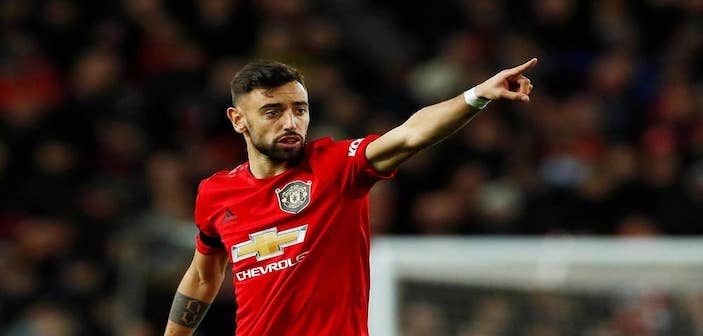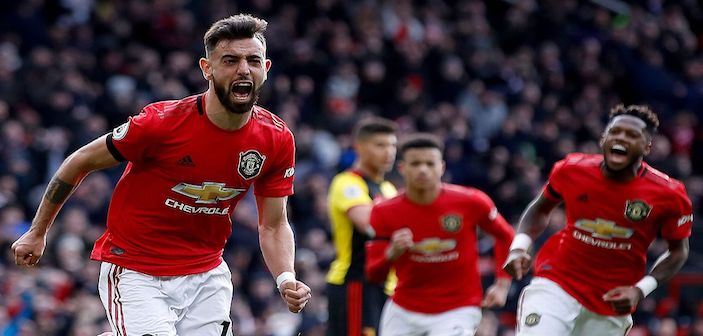In the first of a brand new Monday column, Mark O’Haire (@MarkOHaire) shares his thoughts on one of the weekend’s major talking points from across the footballing globe.
Weekend Debrief: There’s more to football than the final score
Liverpool kicked-off the 2019/20 Premier League campaign with a 4-1 victory over newly-promoted Norwich in front of the Sky Sports cameras on Friday night. If you missed the match, headline reports would back up your probable assumption that the European champions handed out a “thrashing” and a “drubbing” to the wide-eyed Canaries at Anfield.
However, anyone who watched the 90 minutes – or inspected the performance data post-match – would tell you that Norwich put in a bold, brave and competitive effort. Sure, the newcomers showed signs of naivety, yes, the Canaries weren’t great in their defensive transitions, but it’s true too that the final scoreline flattered Jurgen Klopp’s charges.
If we’re going to be governed by goals, Norwich conceded a daft own goal to break the deadlock, before a wicked deflection in the penalty area gave Liverpool a great opportunity to double their lead. Terrible defending from a set-piece – a reasonably low percentage goal to concede in data terms – ended the encounter as a contest soon after.
All three goals were completely avoidable. But not just in terms of luck or fortune, which the opening two strikes could be considered. The third was also entirely preventable, although how many players can genuinely say they’ll come out on top of an aerial duel with Virgil Van Dijk this season? They’ll be few and far between, that’s for sure.
I’ve seen suggestions that Norwich “offered very little resistance” and that the Canaries were “battered”. Other reports described a “first-half blitz” as the Merseysiders sent out a “statement of intent”. None of this is true. The visitors actually won the shot count in the opening 45 minutes and I’m convinced these reports are born out of outcome bias.
Were we governed by outcome bias?
Outcome bias is an error made in evaluating the quality of a decision when the outcome of that decision is already known. In this instance, we’re being blinded by the goals in the game, and not the process, nor the actual opportunities created and conceded at Anfield.
You’d have to be a dope to ignore the fearless intent from Norwich on Merseyside. Liverpool allowed more shots at Anfield on Friday than in any home Premier League game last season, and the Reds conceded five on-target efforts – more than any Anfield outing in 2018/19. So why are focusing all our attention on their supposed defensive flaws?
Firstly, Liverpool were below last term’s average in their Expected Goals (xG), shots, shots on-target and shots in the box figures. I know game state plays a part here and the hosts noticeably took their foot off the gas in the second period, but I’d still argue they were far from dominating in the first-half. Secondly, Norwich were without key centre-half and skipper Christoph Zimmermann.
Peculiarly, Aston Villa were described as “brave” and putting up “stern resistance” following their 3-1 loss at White Hart Lane. That was despite grabbing an early breakaway goal and facing a relentless Spurs side that pressed and pressured before finally getting their rewards for an assertive performance the final half hour. Villa were well and fairly beaten whichever way you look at it.
Ignore the media narrative
The narrative we’re fed by the media rarely reflects what was seen on the field. Jamie Carragher seemed confused in his assessments of Norwich throughout Friday evening; at one point, Daniel Farke’s men were praised for staying true to their principles with ‘Carra’ comparing Brendan Rodgers’ Swansea side to last season’s Championship champions.
But by half-time, Carragher was panning the Norfolk outfit for their suicidal attacking approach. Pragmatism was being pleaded for when – anyone who saw Norwich take top honours in the second-tier last term would tell you – it’s simply not their style, nor their strengths. Why curb your instincts, or what’s worked so well for you for 12 months?
Near the end of the contest, Carragher changed his tune again. “It may seem like a strange thing to say off the back of Liverpool winning 4-1 with 10 minutes to go, but against a better side who are more clinical, Liverpool could have lost this game.”
Gary Neville also chimed in post-match, “On another day there’s no doubt Norwich could have had three or four goals”. So why on earth aren’t we queuing up to pile plaudits on the Canaries for their adventurous approach? After all, this match was pretty much a free-hit for the newcomers – nobody expected Norwich to pick up points at Anfield on the opening day.
Sticking to your principles
Speaking after the match, Farke quite rightly stressed the importance of remaining faithful to the formula that had earned his side top-flight promotion. He said: “We have to stick to our beliefs. Of course, we have to defend a bit more solid, but it’s also a few lessons for the lads on the pitch to learn.”
More sense was spoken thereafter as Farke added, “I know no-one wants to speak about it now after this result but in that first half we had nearly the same possession, we had more chances and more shots, but the reality is they had four shots on our goal and were 4-0 up at half-time. That is unbelievably unlucky. Our performance deserved much more.” Here, here.
What was rarely touched upon across the mainstream media was Norwich’s starting XI, with only Grant Hanley and Tim Krul enjoying previous Premier League experience. This is a young team, an exciting side that’s packed with potential and I’m adamant they’ll bloody a few noses over the next nine months, especially the sides looking over their shoulders.
Parallels with Bournemouth
Bournemouth are a fine team, and there are parallels with the Carrow Road club. Since promotion to the Premier League, the Cherries have pocketed just W7-D6-L35 against the Big Six – that’s a 73% loss rate with just 6/48 (!3%) clean sheets kept. Eddie Howe refuses to change tact against the league’s elite and instead produces against the lesser lights.
Bournemouth’s four previous campaigns have seen the south coast club finish 16th-9th-12th-14th for an average position of 13th. Why? Because they score goals, they attack teams and their audacious and courageous approach pays dividend. Last term, only the Big Six scored more than the Cherries, whilst just Fulham and Huddersfield conceded more.
Looking at Premier League records this century, the lowest-scoring side has been relegated 74% of the time across those 19 seasons. On three other occasions, the team to finish with the fewest goals (and survived), suffered demotion the following year. Meanwhile, in each of the last four campaigns, a team has shipped at least 67 goals (1.76 per-game) and stayed up.
The top-flight has evolved in recent years. The standard of coaching in the Premier League is at an all-time high – the best minds in world football are all congregated in England and it’s led to an exciting transformation towards attack-minded football. Clubs know the value of three points over one, and the days of Sam Allardyce and co. appear behind us now.
Use data to your advantage
So how can we avoid the pitfalls? Inspect or analyse games independently, without worrying about the final score. The result should be secondary in your assessments – the process is the most important aspect, and then you can understand if the winning team was dominant, deserving or even fortunate based on the available evidence.
Football is a low-scoring sport and luck plays an enormous part. The league table always lies and results do not tell the whole story. This is where data can help; even the most basic review of shot counts can help point you towards a team that are over or underachieving.
We can’t watch 20+ football matches every weekend and it’s impossible to see all 92 teams in action. Here, data is your friend. Would you continue to back a team that’s won 10 consecutive games 1-0 if you knew they had been out-shot in every game? You wouldn’t, so why ignore the evidence which is largely available? Ignore results, focus on the process.
*Published on 12th August 2019
TOPICS Debrief & Analysis Insights Premier League Tips Stats & Insights








